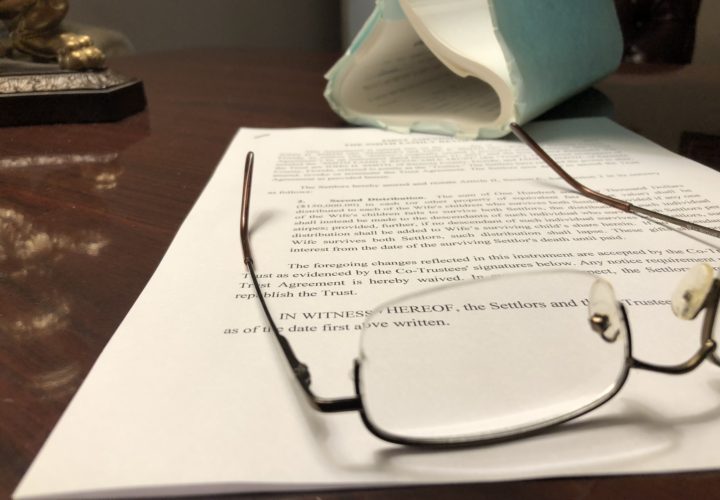When an individual dies in Florida or while owning real property in Florida, probate is the procedure used to transfer his or her assets to the proper heirs. Some assets pass automatically or outside of probate based on their character or how they were titled. There are different types of probate administration, including a full administration, summary administration and ancillary administration. For this article, we will address the most common, full administration. This article is intended to explain generally what probate is, discuss its pros and cons, and identify and discuss ways it can be avoided.
PROBATE EXPLAINED
As long as an individual owns property in their own name, probate administration occurs whether there is a will or not. If no will exists or is found, the estate is distributed according to statute. Once a person dies, an individual is appointed as the Personal Representative (“P.R.”), also known as executor, to administer the estate. The P.R. must administer the estate according to strict guidelines, and is responsible to the court, the heirs, and creditors of the estate. One of the responsibilities of the P.R. is to publish a notice of administration for the benefit of creditors and to notify known creditors directly. Creditors then have ninety days in which to file a claim against the estate. Each claim must be addressed, because if it is not objected to, it must be paid. The P.R. is also responsible to ensure that appropriate filings and tax payments are made to the I.R.S. and Florida Department of Revenue. Once all creditor claims are addressed and all taxes paid and acknowledged, the P.R. may distribute all remaining estate assets to the heirs. Only upon final distribution will the P.R. be discharged.
PROS AND CONS OF PROBATE
While the probate process provides an orderly method of transferring an individual’s assets after death, there are many negative aspects to it as well. Probate administration can be expensive. Estate administration is a complicated matter and will generally require an attorney. In addition to the ordinary administration of the estate, the P.R. must often get court approval for any extraordinary actions taken, this necessarily increases the attorney’s involvement thus increasing the fees to the estate. Also, the P.R. is entitled to a fee for their services. Additionally, probate administration can take a long time. Probate administration can take from a few months to several years. Courts will rarely allow final distribution of assets or discharge of the P.R. until all creditor claims have been addressed and all taxes paid and accepted. Lastly, probate administration is very public. With certain exceptions, the probate file is public knowledge, and many clerks’ offices make these filings available on their web site for anyone to see. There may be some situations were probate administration is more appropriate than other transfer devises, but generally there is a better method available.
PROBATE AVOIDANCE
Some assets pass outside of probate because of the type of asset it is or the way in which it is titled. Homestead property can pass outside of probate. (Note: this is not the same as homestead for ad valorem tax purposes, but homestead as provided for by the Florida Constitution.) Property owned jointly with rights of survivorship passes automatically to the joint owner. However, this is a risky method of holding property with anyone other than one’s spouse, as the asset could be tied up by the joint owner’s creditors. Also, property owned jointly by a husband and wife does not take advantage of the unified credit against estate tax.
Lastly, assets transferred during the individual’s lifetime will not be subject to probate administration. These transfers could be directly to an individual, in which case the donor looses control of the asset, or into a trust in which the donor retains control and enjoyment of the asset. This is known as an inter vivos, or living, trust. Properly funded, a living trust can ensure that either no probate is necessary, or a less expensive procedure such as summary administration can be used. Under many circumstances, living trusts are the most versatile and safest method for avoiding probate. Regardless of which method seems best for your situation, you should consult an attorney to help you fully understand the risks and benefits associated with each method. Many attorneys will meet with you to discuss your options for free.
CONCLUSION
While probate administration serves a very necessary function in the transfer of assets at death, it is rarely the best method in performing this function. Through this article, we hope to help you learn what probate is, to determine if it is the best method for your situation, and to show what alternatives are available. Estate planning is a complicated matter. There are many opportunities to minimize the expenses necessary to the transfer of one’s estate, but there are also many hazards for those that do not understand the procedure. Therefore, if you are unsure as to the final effects of your estate plan or if you have no estate plan, you should consult an attorney qualified in estate planning.
If you are interested in obtaining additional information regarding this article or any other article on this site, please contact Bart Scovill at [email protected] or through our firm.



